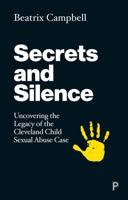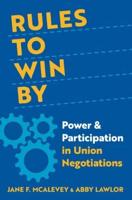Publisher's Synopsis
Every year, tornadoes, hurricanes, and other extreme windstorms injure and kill people, and cause millions of dollars' worth of property damage in the United States. Even so, more and more people build homes in tornado- and hurricane-prone areas, possibly putting themselves into the path of such storms. Having a safe room built for your home or small business can help provide "near-absolute protection" for you and your family or employees from injury or death caused by the dangerous forces of extreme winds. Near absolute protection means that, based on our current knowledge of tornadoes and hurricanes, the occupants of a safe room built according to this guidance will have a very high probability of being protected from injury or death. Our knowledge of tornadoes and hurricanes is based on substantial meteorological records as well as extensive investigations of damage to buildings from extreme winds. It can also relieve some of the anxiety created by the threat of an oncoming tornado or hurricane. All information contained in this publication is applicable to safe rooms for use in homes as well as in small businesses. Should you consider building a safe room in your home or small business to provide near absolute protection for you, your family, or employees during a tornado or hurricane? The answer depends on your answers to many questions, including: Do you live in a high-risk area? How quickly can you reach safe shelter during extreme winds? What level of safety do you want to provide? What is the cost of a safe room? This publication will help you answer these and other questions so you can decide how best to provide near-absolute protection for you and your family or employees. It includes the results of research that has been underway for more than 30 years, by Texas Tech University's Wind Science and Engineering (WISE; formerly known as the Wind Engineering Research Center or WERC) Research Center and other wind engineering research facilities, on the effects of extreme winds on buildings. This publication provides safe room designs that will show you and your builder/contractor how to construct a safe room for your home or small business. Design options include safe rooms located underneath, in the basement, in the garage, or in an interior room of a new home or small business. Other options also provide guidance on how to modify an existing home or small business to add a safe room in one of these areas. These safe rooms are designed to provide near-absolute protection for you, your family, or employees from the extreme winds expected during tornadoes and hurricanes and from flying debris, such as wood studs, that tornadoes and hurricanes usually create. In August 2008, the International Code Council (ICC), with the support of the National Storm Shelter Association (NSSA), released a consensus standard on the design and construction of storm shelters. This standard, the ICC/NSSA Standard for the Design and Construction of Storm Shelters (ICC-500), codifies much of the extreme-wind shelter recommendations of the early editions of FEMA 320 and FEMA 361, Design and Construction Guidance for Community Safe Rooms (first edition, July 2000). FEMA 361 contains detailed guidance for the design and construction of community safe rooms, which also provide near-absolute protection, the level of protection provided in the residential safe rooms of this publication. It is important that those involved in the design, construction, and maintenance of storm shelters be knowledgeable of both FEMA guidance and ICC standards that pertain to sheltering from extreme winds. The safe room designs presented in this publication meet or exceed all tornado and hurricane design criteria of the ICC-500 for both the tornado and hurricane hazards. The safe rooms in this publication have been designed with life safety as the primary consideration.










